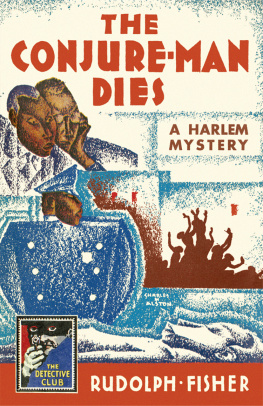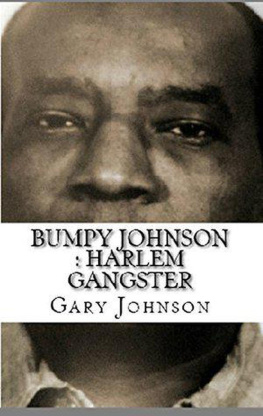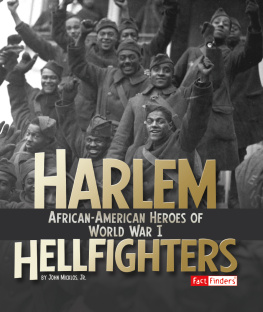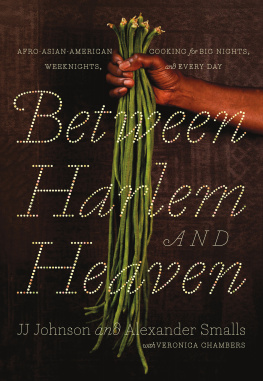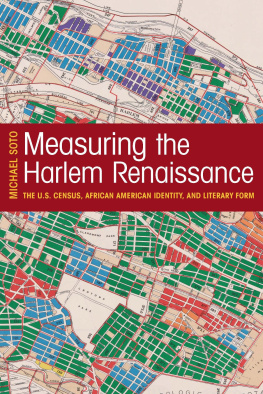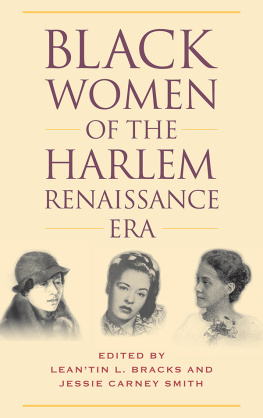Rudolph Fisher - The Conjure-Man Dies: A Mystery Tale of Dark Harlem
Here you can read online Rudolph Fisher - The Conjure-Man Dies: A Mystery Tale of Dark Harlem full text of the book (entire story) in english for free. Download pdf and epub, get meaning, cover and reviews about this ebook. year: 1992, publisher: University of Michigan Press, genre: Detective and thriller. Description of the work, (preface) as well as reviews are available. Best literature library LitArk.com created for fans of good reading and offers a wide selection of genres:
Romance novel
Science fiction
Adventure
Detective
Science
History
Home and family
Prose
Art
Politics
Computer
Non-fiction
Religion
Business
Children
Humor
Choose a favorite category and find really read worthwhile books. Enjoy immersion in the world of imagination, feel the emotions of the characters or learn something new for yourself, make an fascinating discovery.
- Book:The Conjure-Man Dies: A Mystery Tale of Dark Harlem
- Author:
- Publisher:University of Michigan Press
- Genre:
- Year:1992
- Rating:4 / 5
- Favourites:Add to favourites
- Your mark:
- 80
- 1
- 2
- 3
- 4
- 5
The Conjure-Man Dies: A Mystery Tale of Dark Harlem: summary, description and annotation
We offer to read an annotation, description, summary or preface (depends on what the author of the book "The Conjure-Man Dies: A Mystery Tale of Dark Harlem" wrote himself). If you haven't found the necessary information about the book — write in the comments, we will try to find it.
The Conjure-Man Dies: A Mystery Tale of Dark Harlem — read online for free the complete book (whole text) full work
Below is the text of the book, divided by pages. System saving the place of the last page read, allows you to conveniently read the book "The Conjure-Man Dies: A Mystery Tale of Dark Harlem" online for free, without having to search again every time where you left off. Put a bookmark, and you can go to the page where you finished reading at any time.
Font size:
Interval:
Bookmark:
Contents

Collins Crime Club
an imprint of
HarperCollinsPublishers Ltd
1 London Bridge Street
London SE1 9GF
www.harpercollins.co.uk
First published by Covici-Friede, New York 1932
John Archers Nose first published in The Metropolitan by Meeks Publishing Co. 1935
Introduction first published by Arno Press Inc. 1971
First edition cover art by Charles H. Alston 1932
Cover layout design HarperCollinsPublishers Ltd 2017
A catalogue copy of this book is available from the British Library.
This novel is entirely a work of fiction. The names, characters and incidents portrayed in it are the work of the authors imagination. Any resemblance to actual persons, living or dead, events or localities is entirely coincidental.
All rights reserved under International and Pan-American Copyright Conventions. By payment of the required fees, you have been granted the non-exclusive, non-transferable right to access and read the text of this e-book on screen. No part of this text may be reproduced, transmitted, down-loaded, decompiled, reverse engineered, or stored in or introduced into any information storage and retrieval system, in any form or by any means, whether electronic or mechanical, now known or hereinafter invented, without the express written permission of HarperCollins.
Source ISBN: 9780008216450
Ebook Edition February 2017 ISBN: 9780008216467
Version: 2016-11-18
T HE D ETECTIVE S TORY C LUB is a clearing house for the best detective and mystery stories chosen for you by a select committee of experts. Only the most ingenious crime stories will be published under the T HE D ETECTIVE S TORY C LUB imprint. A special distinguishing stamp appears on the wrapper and title page of every T HE D ETECTIVE S TORY C LUB bookthe Man with the Gun. Always look for the Man with the Gun when buying a Crime book.
Wm. Collins Sons & Co. Ltd., 1929
Now the Man with the Gun is back in this series of Collins Crime Club reprints, and with him the chance to experience the classic books that influenced the Golden Age of crime fiction.
T HE C ONJURE -M AN D IES is, first and foremost, highly readable, wholly entertaining.
This should go without saying, since the book is a mystery novel of merit, and the sole function of any mystery story is to entertain. Of all types of fiction, it is probably the least pretentious, which is all in its favour at a time when the novel is so often used by authors as sugar coating for indigestible messes of philosophy or polemics calculated to make the reading of fiction a duty rather than a pleasure. Or for self-indulgent exercises in Beautiful Writing by poets manqus which make it neither a duty nor a pleasure.
This is not to deny that the formal mystery story does have its limitations, nor that too many of its practitioners, adopting these limitations as a rule book, tend to turn out a sort of mechanically contrived product, one cheapjack job after another rolling off the production line, each similar to the other beneath its coat of paint.
But it is a fact that a writer of authentic talent can and will create within the genre a novel which, while staying in bounds, offers a good example of that talent. Rudolph Fisher was such a writer, and the one mystery novel he wrote, The Conjure-Man Dies, originally published in 1932 , offers striking evidence of it, especially when viewed in the light of its times. Its success on publication was great enough to carry it into production as a play by the Federal Theater Project in 1936 . Its rediscovery, and appearance in this edition, are no more than proper tributes to both its readability and its merits as a record of its period.
Fisher himself was an extraordinary man. A Negro, born on May 1897 in Washington, D.C., he graduated from Brown University with honours and went on to become a distinguished doctor of medicine, specializing in Roentgenology. At the height of his medical career, he turned to writing as an avocation and was soon being published by such magazines as Atlantic Monthly, Crisis, McClures, American Mercury and Story. A novel, The Walls of Jericho, published in 1928 , received high critical praise, and when one adds the success of The Conjure-Man Dies to the list of Fishers literary achievements, it is plain that he was at least as talented in writing as he was in the practice of medicine. He died, however, on December 1934 , tragically young, and with a brilliantly promising career in letters unfulfilled.
His authorship of The Conjure-Man Dies gave Fisher a lonely distinction. Since the 1860 s, when Metta Victor in America and Wilkie Collins in England produced the first formal mystery novels, there had been no Negro writer who utilized this technique as a means of literary expression until Fisher came along. After his death there was again a hiatus until the 1960 s, when Chester Himes appeared on the scene with his detective stories of Harlem. The time now ripe for it, Himes, an enormously talented writer himself, came to achieve a prestige and financial success from his mystery stories which Fisher could never have conceived.
What adds a special dimension to Fishers novel from the present readers point of view is the date of its publication, 1932 . The Negro experience that year was still basically unchanged from the era of the Reconstruction. The vaunted Harlem Renaissance of the 1920 s had not gone below the surface; excellent as some of the literature emerging from it was, there was a strong smell of the dilettante about the movement, largely emanating from the whites who were part of it. And the Great Depression had stopped even the meagre economic life blood that was left in black communities from flowing. If life everywhere was hard, life in Harlem came down to a desperate day by day struggle for mere survival in a world where the most minimal public works and inadequate welfare payments were only glimmerings on the Rooseveltian horizon, and where the word militant was the exclusive property of white-dominated radical organizations.
Under these life and death conditions, the Negro role, as prescribed by the white world, remained consistent. It was a role, familiar as ever, presented to the black by, among other things, the mystery stories of Octavus Roy Cohen in The Saturday Evening Post where the antics of the comically uppity Florian Slappey and his dull-witted, head-scratching cohorts illustrated it so vividly, and by mystery movies where the trusty but terrified and goggle-eyed black servant could perform it larger than life on the screen.
On the other hand, the Negro could take what comfort he might from the solicitous white intellectual and dilettante who, heading in the opposite directon from the arrant racist, sentimentalized the black, romanticized his bitter life style into something delightfully exciting, and, in effect, patted him on the head as one would a pet spaniel. It was ironic and inevitable that neither the racist nor the sentimentalist knew how nicely they were cooperating in the destruction of a peoples identity and individuality by barring the way to the honest exploration and discovery of them. This, of course, is the function of the stereotype, and it matters very little whether the stereotype is that of vicious hound or pet poodle.
The mystery novel of that day, where it dealt with the Negro at all, played both angles. The Negro was either servitor or hardboiled crap shooter, take it or leave it. Hardly surprising when one considers that, first, the mystery novel is popular fiction, and popular fiction always tends to cater to popular prejudices, and, second, that the genre itself had, by and large, used as its subjects the white Anglo-Saxon Protestant middle and upper classes, always acknowledging their superiority to the non-WASP world without question.
Next pageFont size:
Interval:
Bookmark:
Similar books «The Conjure-Man Dies: A Mystery Tale of Dark Harlem»
Look at similar books to The Conjure-Man Dies: A Mystery Tale of Dark Harlem. We have selected literature similar in name and meaning in the hope of providing readers with more options to find new, interesting, not yet read works.
Discussion, reviews of the book The Conjure-Man Dies: A Mystery Tale of Dark Harlem and just readers' own opinions. Leave your comments, write what you think about the work, its meaning or the main characters. Specify what exactly you liked and what you didn't like, and why you think so.

